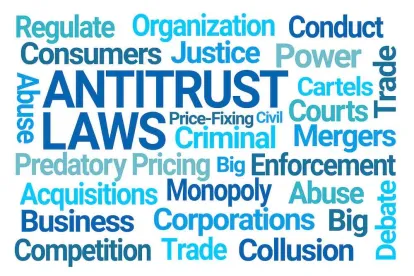The Sherman Act was passed in 1890. The Clayton Act in 1914. And they have hardly changed since. Last month, Senator Amy Klobuchar, the new chair of the Senate Judiciary Committee’s Subcommittee on Antitrust, Competition Policy and Consumer Rights, proposed an overhaul of the antitrust laws: CLERA, the Competition and Antitrust Law Enforcement Reform Act. If passed, CLERA would constitute the most significant change to antitrust law in a least a generation. In particular, it would also pose substantial new antitrust concerns for technology companies seeking to engage in what have been standard mergers and acquisitions.
Mergers and Acquisitions
First, CLERA aims to lower the threshold for determining whether a merger or acquisition is prohibited under Section 7 of the Clayton Act. Mergers that “create an appreciable risk of materially lessening competition,” would be prohibited. Under current law, the “substantially lessen,” standard requires the government to establish the transaction has a near certainty of causing future harm.
Second, CLERA would create a presumption of illegality for a broad swath of transactions. In these cases, the companies involved in the transaction must proactively prove that their merger or acquisition will not harm competition. This provision dramatically shifts the burden of proof away from the government.
Under CLERA, for instance, any transaction that would lead to more than a 50% market share would be presumptively illegal. Additionally, the bill extend to deals worth more than $5 billion or deals involving a company worth more than $100 billion. Other transactions also captured would include:
Any acquisition that would “lead to a significant increase in market concentration;”
-
Acquisitions of competitors by companies with a market share of 50% or more; or
-
Acquisition of a market disrupting competitor.
Third, the amendments would clarify that “monopsony” power is part and parcel of the monopoly power explicitly listed in the current statute, expanding the scope of prohibitions.
In total, these changes would dramatically restrict the types of transactions that could make it past government scrutiny, as it would substantially increase the number of potentially regulated deals and the government’s ability to block them.
Exclusionary Conduct
CLERA also shifts the focus of antitrust law from consumers to competitors. For instance, the bill would amend Section 2 of the Clayton Act to prohibit “exclusionary conduct.” This prohibition would keep “dominant firms” from engaging in any conduct that would “materially disadvantage” a competitor or conduct that would disincentive competition.
Again, the bill draws a clear line on activity that is presumed to be illegal. Any firm with more than 50% market share would bear the burden of showing that its conduct does not harm competition. And perhaps most momentously, CLERA would eliminate the current judicial requirement to define a relevant market. Rather, direct evidence proving actual or likely harm will be sufficient to create liability under all antitrust laws. Eliminating the relevant market definition will substantially lower the government’s burden of proof in antitrust cases nationwide and permit it to bring claims in a wide variety of fields.
Penalties
Senator Klobuchar seeks to add significant civil penalties for antitrust violations. Currently, civil fines are capped at $100 million. CLERA removes the dollar cap and shifts the focus to the violator’s revenues by permitting the greater of either (1) 15% of the violator’s annual revenue, or (2) 30% of the violator’s revenue during “period of the unlawful conduct. The extent of the civil penalties will be determined by considering a variety of factors including the existence of any previous antitrust violations, long-term exclusionary activity, and malicious intent.
Effect on Tech
Lowering the standard to block mergers while expanding the prohibition to include monopsonies would dramatically alter the M&A playing field. Passage of CLERA would provide additional ammunition for challengers seeking to bring claims against recent Big Tech consolidation, as the major players exert something resembling monopsony power in at least one market segment (e.g. Amazon in the market for eBooks). While the bill would not retroactively apply to pre-passage conduct, it would discourage additional considerations moving forward.
By narrowing the types of mergers and acquisitions that can make it through the government approval process and adopting new standards of proof, the Klobuchar legislation will present substantial risk to technology companies engaging in these types of deals. A newly defined judicial standard would require years of litigation through the court system to flesh out, at substantial cost to the parties whose merger or acquisition is being challenged.
Potential for Passage and Next Steps
As noted, some similar changes were proposed by the House Antitrust Subcommittee last year, and several House Republicans spoke in favor of, among other things, presumptions of anti-competitiveness and increased enforcement. But it is notable that no Republicans signed on as cosponsors of her bill before its introduction. Moreover, Ranking Member Senator Mike Lee (R-UT) criticized the bill, arguing that regulators should enforce the law as is without making major changes. Neither fact bodes well for CLERA’s prospects, at least as currently formatted. But it is likely that the committee will schedule a hearing in the near future, which may provide further insight into this administration’s antitrust priorities.






 />i
/>i

